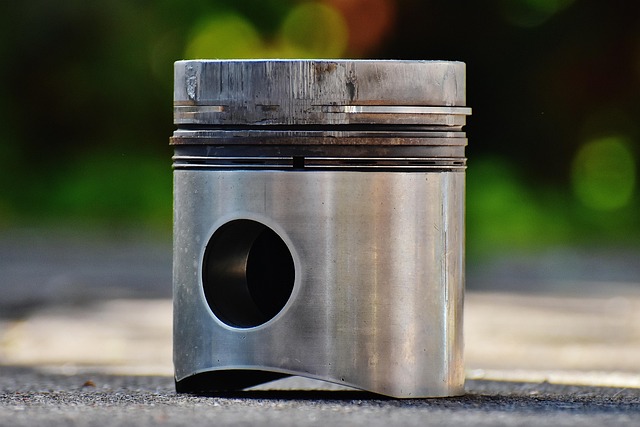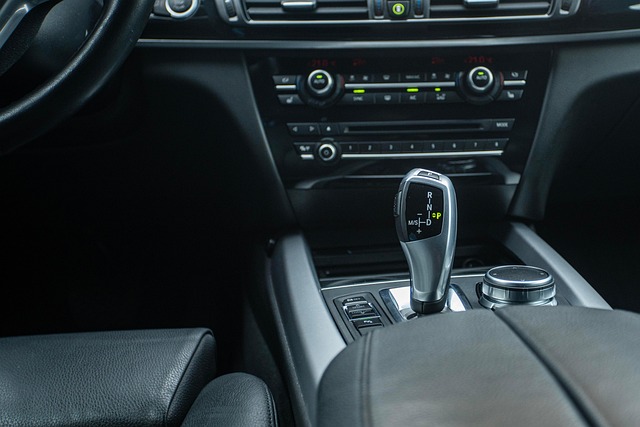Looking to register your car in California? This comprehensive guide walks you through the entire process, from understanding the requirements for car registration to completing the necessary DMV VIN verification. We’ll help you gather all required documents and prepare your vehicle for inspection and title transfer. By following these steps, you’ll be on your way to securing your vehicle’s registration at a California DMV office. Plus, learn about post-registration maintenance to ensure ongoing compliance.
- Understand the Requirements for Car Registration in California
- Gather Necessary Documents for DMV VIN Verification
- Prepare Your Vehicle for Inspection and Title Transfer
- Visit a California DMV Office for Registration and Fees
- Post-Registration: Maintaining Your Vehicle's Registration and Compliance
Understand the Requirements for Car Registration in California

Before registering your car in California, it’s crucial to understand the requirements and steps involved. The process begins with ensuring that your vehicle meets all safety and emission standards set by the state. One key step is the DMV (Department of Motor Vehicles) VIN (Vehicle Identification Number) verification, which confirms the vehicle’s authenticity and history. This process typically includes a thorough inspection to ensure the car’s components are in good working order and meet California’s regulations.
Additionally, you’ll need to provide proof of insurance and complete necessary forms. A mobile vin verifier or a vin inspection service can assist with the verification step by providing digital proof of your vehicle’s history, making the process more convenient. This is especially useful if you’re transferring ownership or have recently purchased a used car. Remember, adhering to these requirements is essential for a smooth registration process and legal operation on California’s roads.
Gather Necessary Documents for DMV VIN Verification

Before heading to the DMV for car registration, make sure you have all the essential documents ready for a smooth process. The most crucial step in this regard is the DMV VIN verification, where your vehicle’s unique identification number (VIN) needs to be confirmed. Gather the following key documents for this purpose:
1. Your vehicle’s title, if applicable, as it often contains the VIN.
2. Registration papers or a current registration certificate from the previous state, if you’ve recently moved.
3. A valid driver’s license or state-issued ID card.
4. Proof of insurance, which is mandatory in California.
5. If you’ve acquired your vehicle through a private sale and don’t have access to the above documents, consider options like obtaining a mobile vin inspection or using a vin verifier service. These services can provide temporary documentation for the VIN verification process at the DMV.
Prepare Your Vehicle for Inspection and Title Transfer

Before you can register your car in California, ensure your vehicle is ready for the state’s rigorous inspection process. This involves preparing both the physical condition of your car and gathering essential documents. Start by conducting a thorough mobile VIN verification to confirm your vehicle’s identity and history. Check for any outstanding issues or potential red flags that might delay the registration process.
Next, ensure all necessary paperwork is in order, including the title transfer documents. The California Department of Motor Vehicles (DMV) requires a signed bill of sale and a valid vehicle title. It’s important to have these documents ready before scheduling your inspection. A mobile VIN verifier can assist in verifying your vehicle’s history and ensuring everything is in compliance with state regulations.
Visit a California DMV Office for Registration and Fees

To register your car in California, one of the essential steps is to visit a DMV office. These offices are responsible for processing vehicle registration and ensuring compliance with state regulations. During your visit, you’ll need to provide several crucial documents, including proof of ownership, valid identification, and payment for the registration fee. The staff at the DMV will guide you through the process, which includes a DMV VIN verification, a critical step to ensure the vehicle’s authenticity.
At the DMV, you can expect a straightforward procedure where a vin inspection is conducted to cross-reference the vehicle identification number (VIN) with their records. This step is vital to prevent fraud and ensure that the car meets all safety standards. Alternatively, many California residents opt for a mobile vin verifier or mobile vin inspection service, offering convenience by performing the VIN check at your preferred location.
Post-Registration: Maintaining Your Vehicle's Registration and Compliance

After successfully registering your vehicle with the California DMV (Department of Motor Vehicles), it’s crucial to maintain compliance and keep your registration up-to-date. This involves regular checks and actions to ensure your car meets all safety and legal standards. One essential step is to have a Vehicle Identification Number (VIN) verification done, which can be done through a mobile vin inspection or online. The DMV offers various services to help vehicle owners stay compliant, including timely renewal of registration, addressing any outstanding issues, and keeping track of important documents.
Regular maintenance and inspections are vital to maintaining your vehicle’s safety and roadworthiness. This includes adhering to emission standards, ensuring proper functioning of lights and signals, and addressing any mechanical issues promptly. By staying on top of these tasks, you not only comply with California’s regulations but also contribute to safer roads and a smoother driving experience for everyone. Remember, a valid registration and up-to-date VIN verification are critical components of responsible vehicle ownership.
Registering a car in California involves understanding specific requirements, gathering essential documents, and visiting a DMV office. After successful registration, it’s crucial to maintain your vehicle’s registration and comply with all relevant regulations, including timely renewal and proper title transfer. Remember, accurate DMV VIN verification is a critical step in this process, ensuring your vehicle meets all safety standards.
